
About 30 women crouch together in a tight circle on a 45 degree morning in Los Angeles’ Griffith Park. As they extend their arms to join hands in the center of the circle, Raquel Román joins a simple cheer: “Chingonas (Badasses) on three!” By 7:20 a.m., the runners file onto the road and through the park. Many are training for a January half marathon nearby in Pasadena. But that was never this group’s goal.
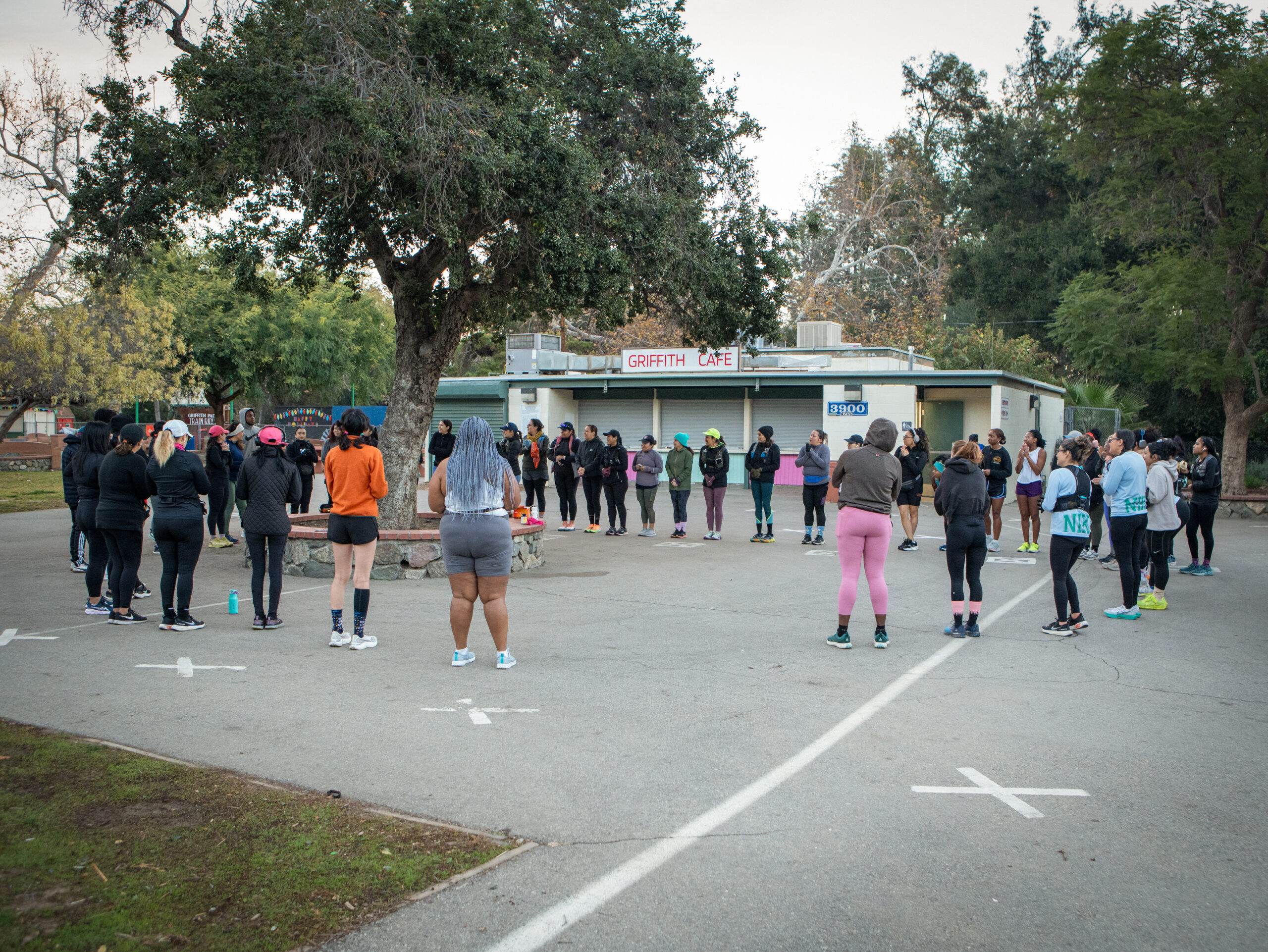
“We had no idea what it would grow into: We just wanted to run,” recalls Román, executive director of Proyecto Pastoral, a community-based nonprofit that has created early childhood services and homeless shelters and led community organizing in Boyle Heights, where Running Mamis was formed.
Four Chicana mothers started the group in 2018, with a simple plan: to create a welcoming space for other mothers — as well as tias and abuelas — to run for exercise. In Boyle Heights, broken street lights at night and uneven, cracked sidewalks are a problem. There were other safety concerns about running in their neighborhoods, such as inattentive drivers and cat calls from men.
“People claim running is accessible to everyone — it’s not,” said Jo Anna Mixpe Ley, a teacher at Roosevelt High School and co-founder of the group. “It’s not as simple as just putting on a pair of shoes.”
Together, the Running Mamis found places with smooth sidewalks and paths safe for running strollers, and free from the unwelcome taunting all too common on busy streets. Running together, they began to talk about the pressure and stress of motherhood. At first they met on Saturday mornings for a couple of hours. They talked about immediate needs like baby feeding and diaper changing. But as the weeks progressed and the mothers became more trusting of one another, some began to talk about postpartum depression. Sadness, guilt, trouble eating and sleeping, and even thoughts of harming the child or oneself are signs of postpartum depression.
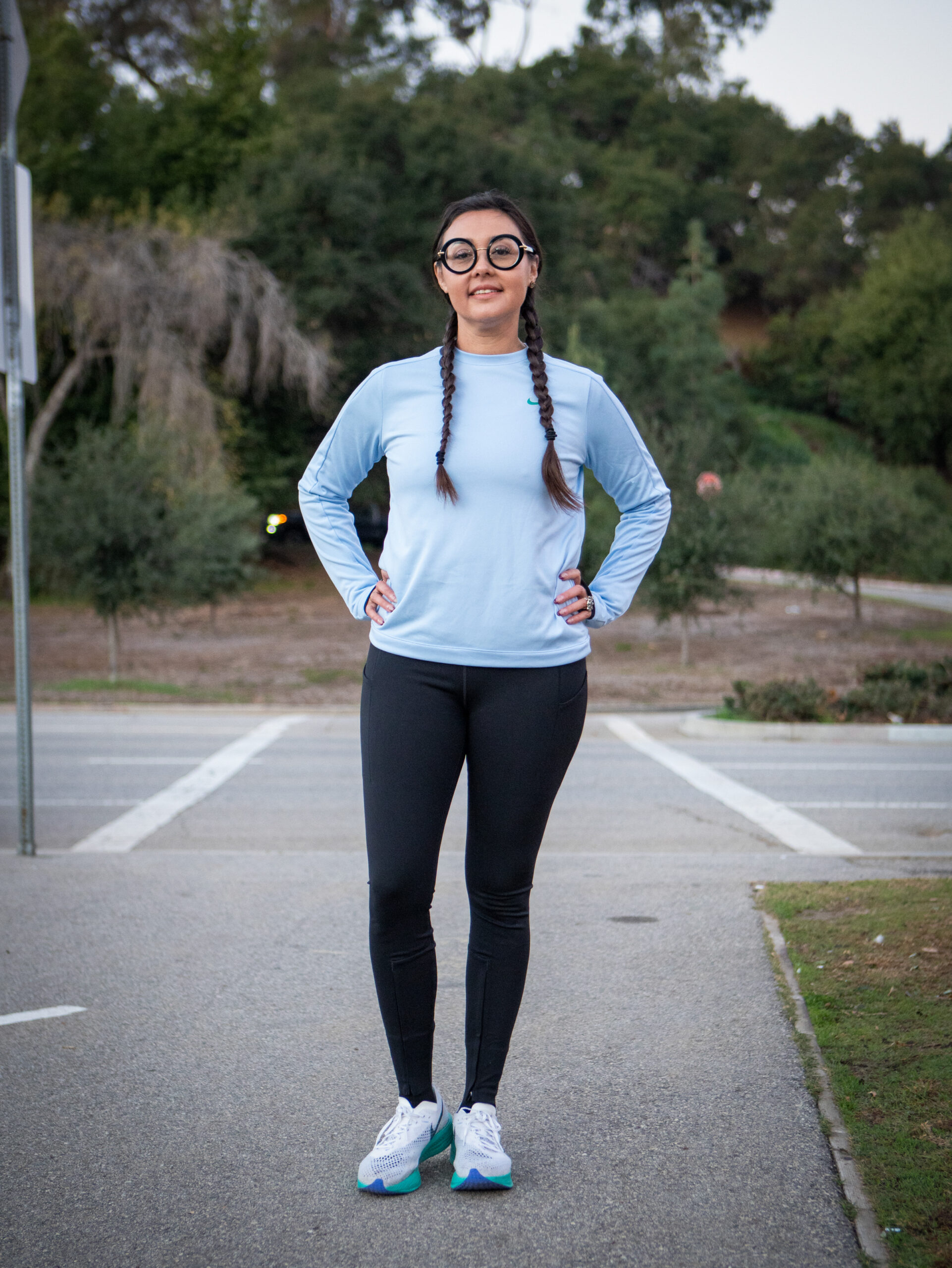
In Southern California communities of color — whether Latina, Black or Asian — women suffer higher rates of diabetes, stroke and pulmonary diseases than their white peers, according to a study in the journal Global Public Health (Asians were an exception on obesity, suffering lower rates than their white counterparts). One of the study’s most important findings was the connection between poor mental health and poor physical health.
Another study in the American Journal of Obstetrics & Gynecology found that postpartum depression rose dramatically for all groups of Southern California women from 2010 to 2021 – but the increase was far higher for women of color. Postpartum depression among Latinas rose by 110% while white women experienced a 60% increase. African Americans and Asian and Pacific Islanders saw even greater increases.
Exercise, including running, can help mothers suffering postpartum depression. But working mothers face particular challenges.
They must find child care, and running can require spending a lot of money for appropriate shoes, clothes and, if possible, a running stroller.
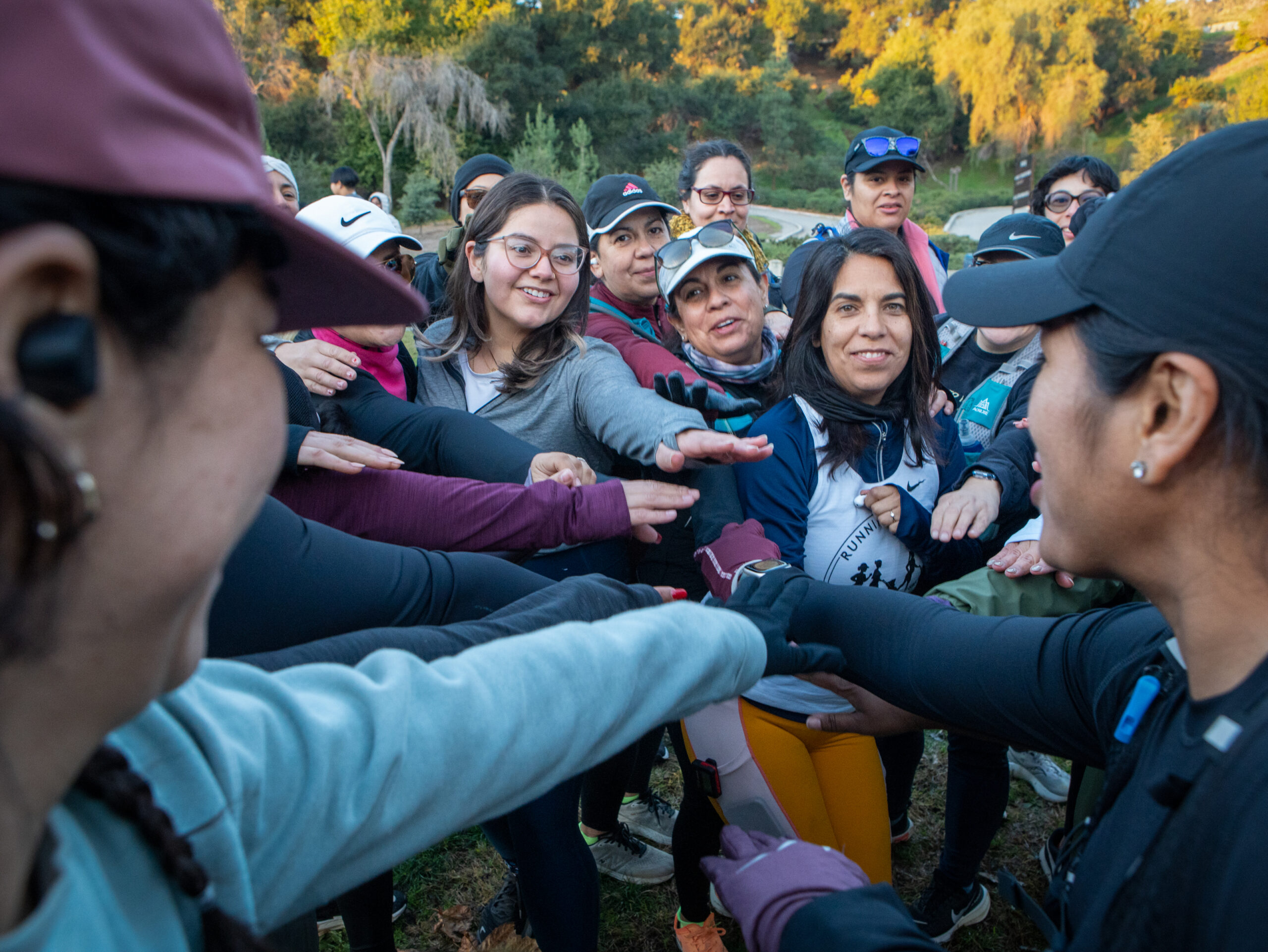
Strollers prompted Running Mamis. Ley and Román were both asked to start at the rear of a run because of their jogging strollers.
“Some races tell people — parents — you can’t race strollers. That’s not inclusive,” Ley said.
One month later, two other mothers — Raquel Zamora and Moni Perez — joined Román and Ley at her home in Boyle Heights. The four talked about creating a healthy community with other mothers.
In April 2018, Running Mamis gathered for the first time at what would become their home base, Los Angeles State Historic Park, known locally as the Cornfield or Taylor Yards, a massive park between L.A.’s Chinatown and Lincoln Heights. With little more than a digital flyer across a few social media platforms, 11 women joined the four mothers.
Now the Running Mamis gather weekly. Now, as then, mothers breastfeed before the run. Diapers get changed. Clean wipes are shared. There are helping hands that understand. Birth stories are common.
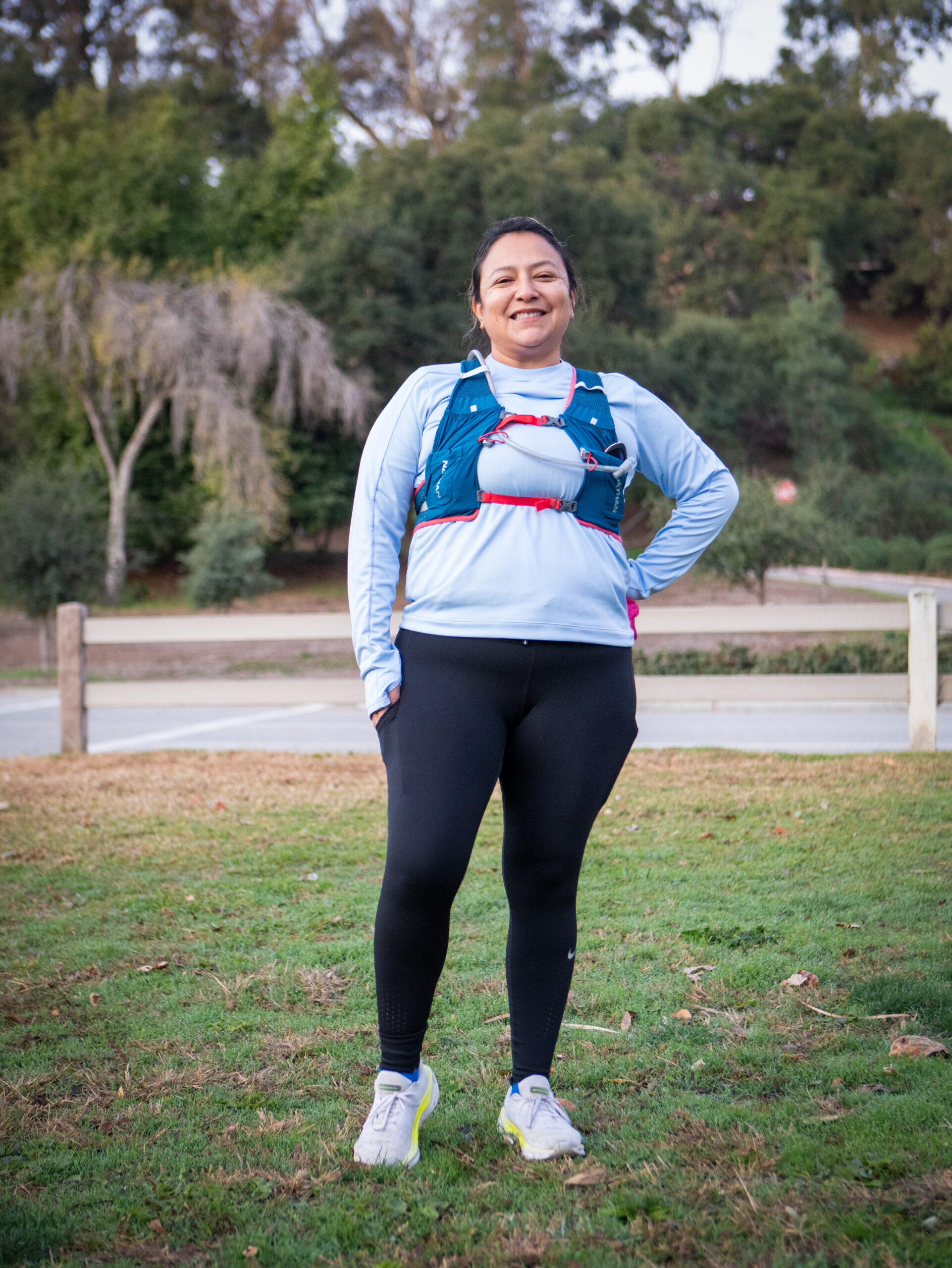
Román recalls that about two years ago, a woman they had never met joined the group. She walked alongside Román, who asked the newcomer how she heard about the group. To her surprise, the woman said her therapist recommended Running Mamis.
“I thought, Oh my god, we made it,” she recalled. “We’re making a difference.”
As a running group, Running Mamis organize clinics on training for races, proper shoes, shoe rotation, improving stride and gait. Running Mamis also organizes wellness workshops on yoga, meditation and strength training; a book club; self-defense classes; as well as family centered-events like the Halloween Children’s Run.

There is no hard rule that men or fathers are not allowed. Román notes that the husbands and partners have been invited to run. They opted not to run, saying they wanted to respect the space the women created for themselves.
Hakim Tafari, a sort of running ambassador for Los Angeles, remembers meeting Ley at Nike’s East L.A store when her daughter was still a baby. He, and other Los Angeles runners and running groups, have taken notice of Running Mamis at races and running clinics. He said it’s not surprising that partners and husbands honor the space by not joining.
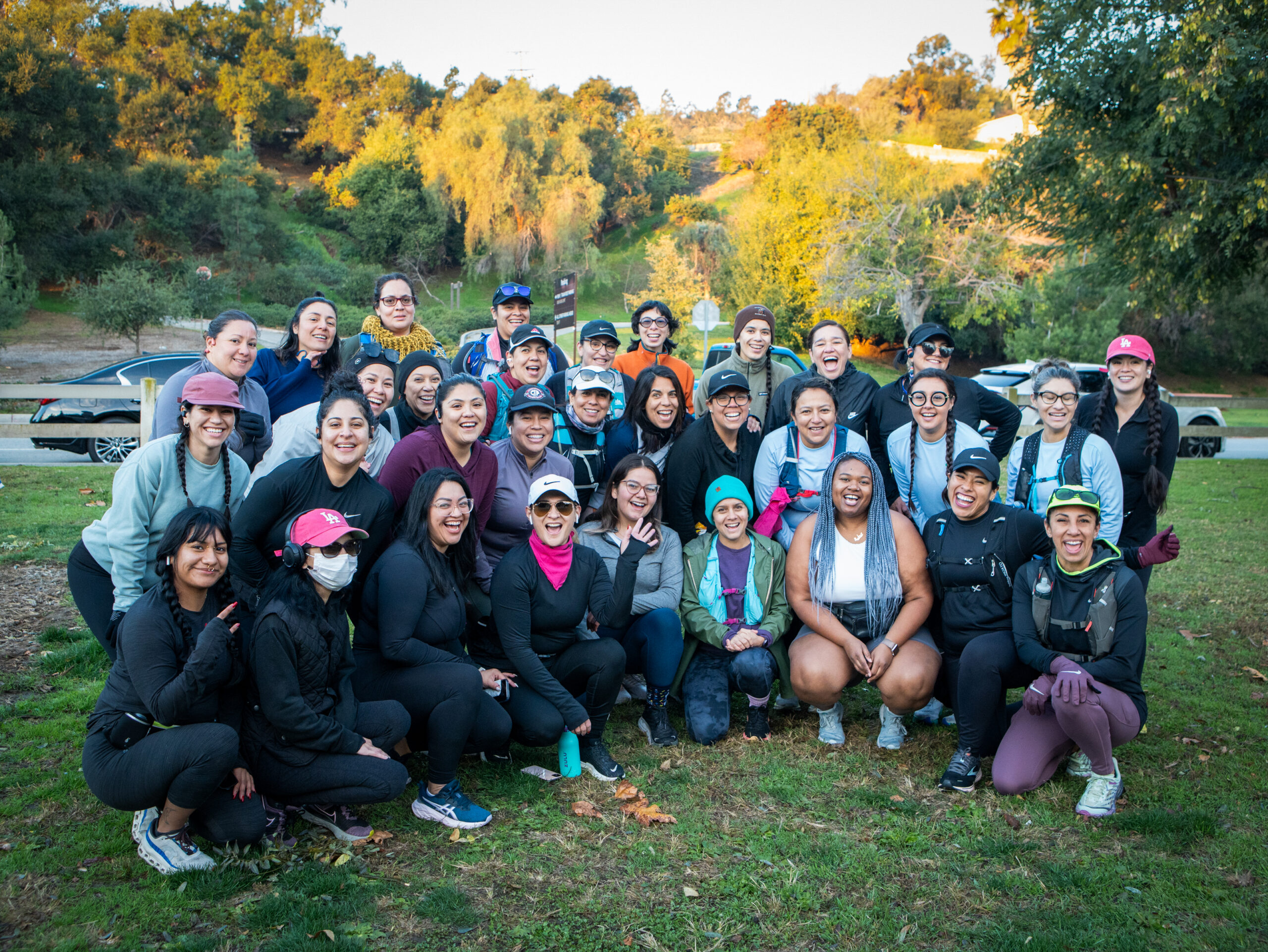
“They have carved out such a beautiful, unique niche,” Tafari said. “Why would you bogart it? They’ve gained that respect.”
Running Mamis is not a formal, not-for-profit organization, nor is it a small business. Running Mamis is a group of mothers texting, calling and messaging with other mothers to run. While the group seems to be an example of what could take root elsewhere, Román and Ley are quick to note that every community has its own unique and specific needs. But, they add, inclusive and safe spaces are always needed, regardless of the community.







